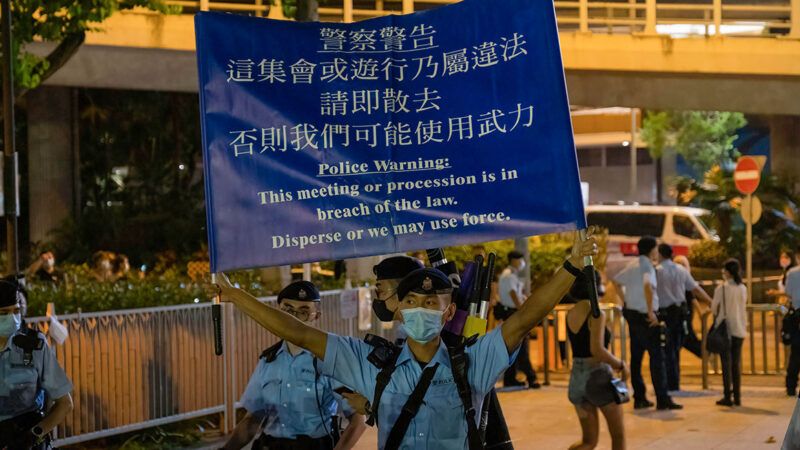The Pandemic Killed Dissent in Hong Kong
Every June since 1990, residents had held a vigil for the Tiananmen Square dead. But in 2020, Hong Kong announced an extension of social distancing restrictions until June 5, the day after the anniversary.

When Great Britain returned control of Hong Kong to China in 1997, a condition of the transfer was that Beijing would allow the territory to maintain its own government until 2047. The Chinese Communist Party (CCP) has never liked this agreement, and the COVID-19 pandemic provided the excuse to all but erase the "one country, two systems" distinction.
The CCP began its authoritarian assimilation of Hong Kong in 2019, when Beijing encouraged CCP loyalists in Hong Kong's legislature to pass a law allowing extradition of residents to mainland China. That proposal sparked pro-democracy protests and a police crackdown in Hong Kong, which captured the world's attention.
In June 2020, Beijing responded to the pro-democracy movement by requiring Hong Kong to implement a national security law that "introduc[ed] ambiguously defined crimes such as separatism and collusion that can be used to stifle protest," as The New York Times put it. But the pandemic provided Beijing with an even bigger opportunity to suppress dissent.
Citing public health concerns, Hong Kong postponed its Legislative Council (LegCo) elections for a year. In the interim, Beijing changed LegCo election rules to reduce the number of directly elected seats and to require that candidates pledge their loyalty to mainland China.
With only Beijing-aligned "patriots" on the ballot, CCP loyalists swept the 2021 LegCo elections. Many leading opposition politicians went into exile, while others were jailed. Voter turnout was a paltry 30 percent—the lowest since the handover in 1997. By comparison, a record 71 percent of registered voters cast ballots in the 2019 district council elections. The high turnout was reportedly driven by opposition to the extradition treaty, and pro-democracy candidates won 85 percent of the available seats.
The pandemic also has facilitated suppression of pro-democracy protests. Every June since 1990, residents of Hong Kong had marched and held a vigil in memory of the Tiananmen Square dead. But in 2020, Hong Kong announced that it would extend social distancing restrictions until June 5, the day after the massacre's anniversary.
Hong Kong's COVID-19 rules banned public meetings of more than eight people, with a potential penalty of six months in jail. As a result, only a small vigil was held. Organizers nevertheless were arrested and sentenced to up to 14 months in jail. The sentencing judge remarked that they had "belittled a genuine public health crisis."


Show Comments (17)